How Bare Metal Hosting Solutions Can Help Your Business
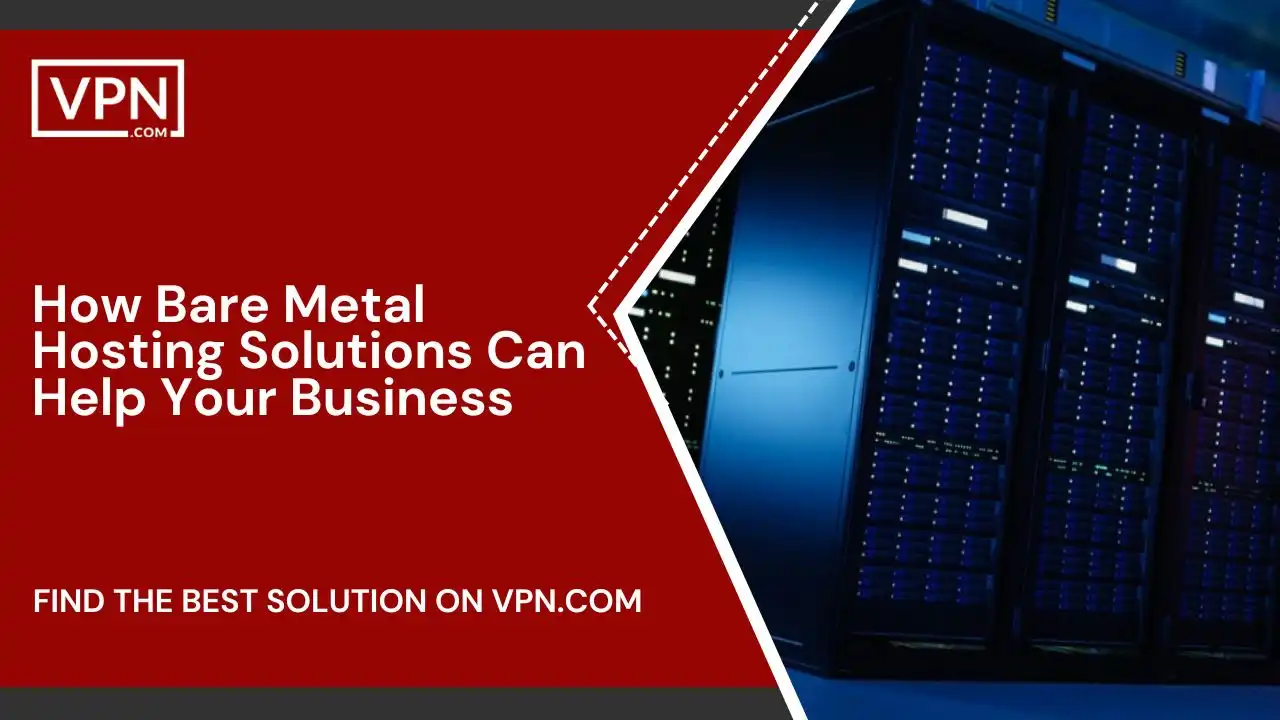
Have you ever thought about making a website for your business? If yes then you must be concerned about choosing a hosting for your website. And with so many options out there, it is very difficult to choose one that suits your needs. You must know the server you choose for your website has a great impact on your credibility and online performance. As far as we know the best options available in the market as dedicated servers are Bare metal servers. Today we are going to discuss how metal servers are a good option for your online business.
If you want a powerful and secure base for your digital set-up then we think you will love using a Bare metal server for your website. We know while using a server you have to face various potential deficiencies that are linked to your shared virtual settings. However, with a bare metal environment, you don’t have to face any. You can also have the benefit of using inflexible knowledge. They will minimize the network latency for good performance and even the resources are readily available in the bare metal infrastructure. You even have the option to customize your bare metal server and the tenant can improve your server depending on your requirements. So, today we are going in depth on Bare Metal Servers. So, keep reading to understand how they can suit your needs and help you make a better decision.
What Is A Bare Metal Server?
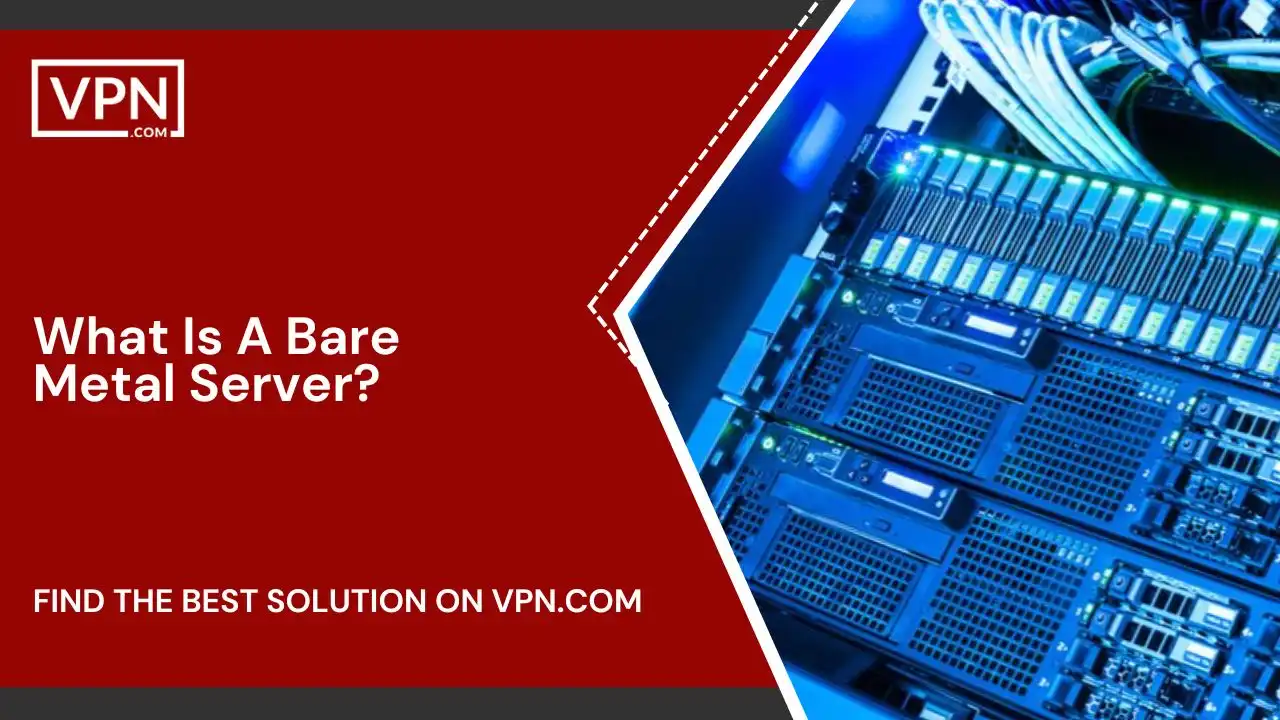
If you are looking for the most advanced web hosting solution then we think Bare Metal Servers are the answer here. However, if you want to understand how it is unique from others you need to understand its types too. When talking generally, you need to understand the dichotomies that separates two types of server; Physical vs Virtual and shared vs. Private. Not taking the type regard, all servers consist of a certain set of storage resources and computing resources. These are the main power points of their hosted websites.
When we talk about the old school servers then we are talking about a single, real -deal thing. But look at the virtual options like cloud hosting, they can grab resources from a lot of different physical setups. Unlike a physical server that stucks unless you boost it up, virtual spaces can just keep piling up on more resources. A shared server is like the friendly type here. It uses the physical stuff to help out many websites.
However, this server has some perks, especially in spreading the costs around the different users. For instance, take WordPress. It will use this shared server to let users own a website without breaking their banks. But it does mean less to go around for everyone.
So, now when a bunch of websites get a crazy number of visitors then it can mess up how others on that shared server perform. On the other side, a virtual private server is like having your own VIP area. All its resources are just for one user which makes things smoother and easier. You can even have a private spot within a bigger virtual space. Technically, you are sharing but there is a chunk that is all yours.

Sign Up with our #1 Host
- 24/7/365 Support
- 100% Uptime SLA
- 59-Second Support SLA
- Highly-Trained Technicians
- 25% Off Dedicated Servers
GUARANTEE
What Is Bare Metal Server Structure?
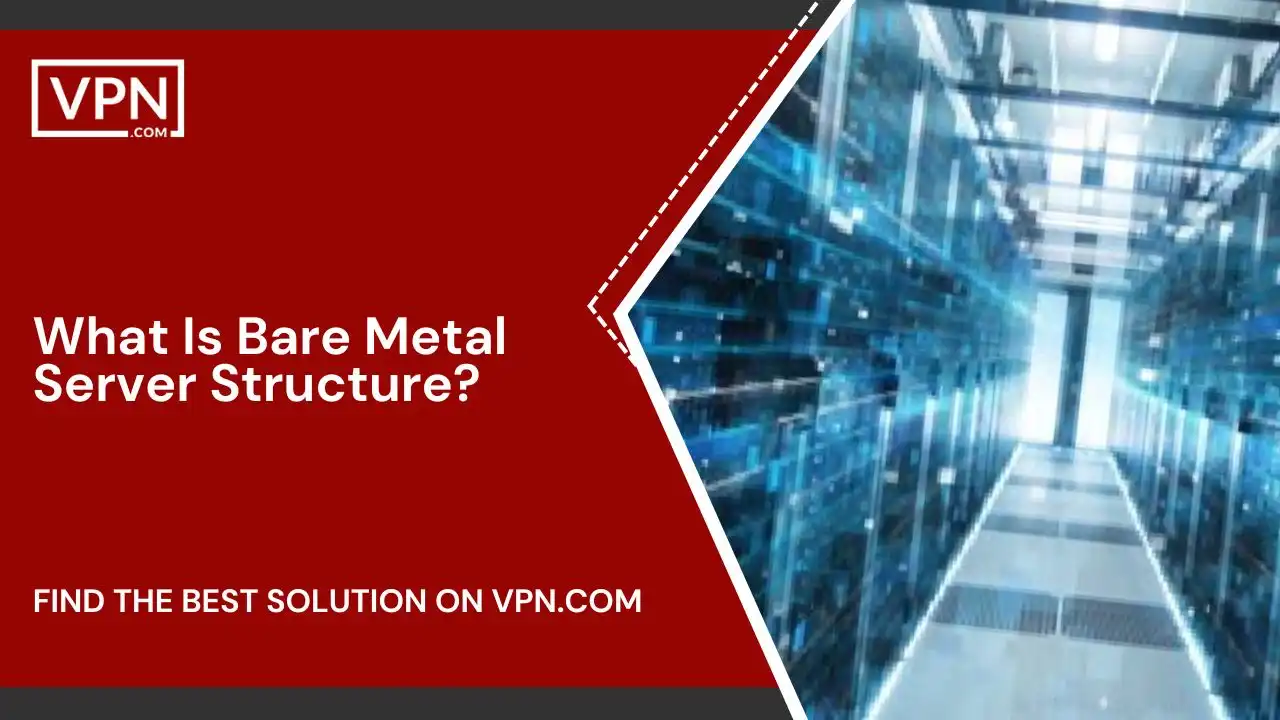
Bare metal servers are designed specifically for what users need. Their structure is completely separate from public cloud servers and hosting companies. They even offer a private cloud option that matches the availability of public cloud services. Unlike cloud servers, bare metal ones don’t have any cloud operating system that eats up resources. They are not affected by other users and ensure top performance; better control during traffic spikes and quicker load times. Plus, the data isolation makes them safer automatically. Essentially there are two types of bare metal servers:
- Traditional Bare Metal Server
- Hypervisor Bare Metal Server
Traditional Bare Metal Server
These are like the OG dedicated servers. Users have their own operating system, like Ubuntu or Windows Server directly on the hardware. All their apps run on this OS. This category includes servers users manage themselves and ones companies rent out.
Hypervisor Bare Metal Server
In the cloud, you can go for bare metal servers with hypervisors. These rely on hardware (hypervisor) and give users a control interface for managing virtual machines. In this setup, users applications run separately in virtualized guest operating systems. Common hypervisors include Citrix XenServer, the Linux kernel’s native virtualization feature, VMware’s vSphere, Microsoft Hyper-V, or KVM. A bare metal hypervisor server lets you run multiple guest systems.
When a user taps into the hardware resources of several dedicated servers in a bare metal hosting setup it is called a bare-metal cloud. Unlike shared hosting where users only control one virtual machine with user managed bare metal servers, the software (hypervisor or OS) depends on the hardware. The host doesn’t manage anything between the server’s hardware and the user.
In the market, the standout product for bare metal devices is the hypervisor-based setup. With user driven virtualization software, this hosting concept allows quick and easy VM deployment. So, a hypervisor bare metal server gives a flexible option compared to the traditional dedicated server, which usually involves time consuming manual setup.
Why Should We Use Bare Metal Server?
Bare metal servers are a smart pick for small and medium businesses. They offer a cost-effective hosting solution that can quickly adapt and automate resource distribution. Some experts suggest that the use of bare metal servers is going down as compared to other hosting choices. Despite that, in many industries, these servers remain a highly favored option. Their unique features deliver top-notch performance, security, and power. In 2016, the total market value for bare metal servers was around $1.3 billion. Grandview Research predicts it could hit $26.21 billion by 2025.
Industries relying on dedicated hosting and colocation such as financial services, banking, government, and healthcare find bare metal servers beneficial. They are also ideal for heavy-duty tasks like database apps or business intelligence. Projects like media encoding operations and render farms prefer bare metal over virtualized servers for the superior performance that it brings.
For software development businesses, bare metal servers offer an affordable way to launch and test their products. Industries that prioritize high data security and precise data operations who are seeking world class performances are more inclined to go for bare metal servers. With the increasing demand for big data, this market is poised for continuous growth. In these sectors, numerous large enterprises are expected to contribute to increased usage. While up until 2016, small and medium businesses were potential customers for bare metal infrastructure, the market’s major growth drivers are projected to be technological advancements and advertising.

Sign Up with our #1 Host
- 24/7/365 Support
- 100% Uptime SLA
- 59-Second Support SLA
- Highly-Trained Technicians
- 25% Off Dedicated Servers
GUARANTEE
What Are Benefits Of Choosing Bare Metal Server?
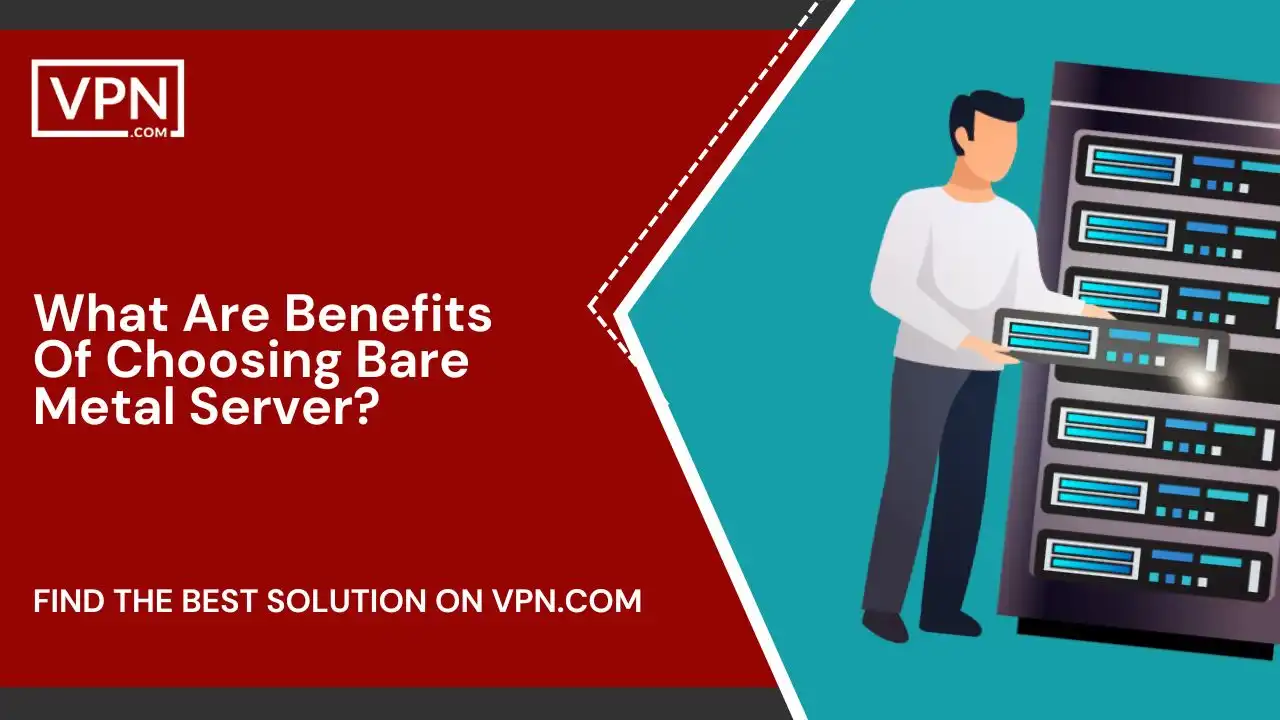
Bare metal servers are like supercomputers. They are great when you need serious power without any extra complications. The parts in these servers are chosen and fine-tuned to work super well like when you are designing stuff like silicon chips in special computer groups. If you have your own server then you can turn it to exactly what you are looking for, making it work just right. So, these servers can really boost your website’s performance and make it more safer and handy.
When it comes to using these servers you can change how they work. Whether it is turning off some tech stuff in the computer’s main system or adjusting other settings, you have all the control. A report in 2018 compared INAP Bare Metal to big names like Amazon AWS and IBM. The INAP server finished tasks faster in tests, showing its true color.
Server Access
Accessing bare metal servers is done through a private network and tenants use remote desktop access to connect with the device. A private network connection is established through a VPN by linking to a chosen endpoint. If you are connecting to a Linux-based server then a secure shell tunnel does the trick. This setup gives you access to the server as if it physically exists on your workstation. For added security, remote desktop access software encrypts data on both the server and your end.
Initially, you will have access to the server as a root user, the ‘superuser’ with full control. To minimize the risk of accidental changes, it is advisable to create a non-root user.
Flexibility
Businesses have options for running bare-metal servers; they can do it from a colocation center, their own data centers, or team up with a managed hosting provider to lease a server. Each option has its own pros and cons but for small to medium sized businesses, leasing a bare metal server is often the best choice. Deploying a leased server is super easy; many IT service providers offer ready to go dedicated servers that can be used for any type of work. For instance, secure bare metal servers relying on Intel Xeon processors give you a cost-effective solution for intensive tasks. With a bare metal server, you can get full control over the hardware setup.
Customizability
The best thing about bare metal servers is that you can make them fit your online business perfectly. You get to pick the features and specs you want. Whether it is a specific GPU model, NVMe storage for super-fast data access, or a special RAID level or RAM-to-CPU ratio, bare metal is totally customizable. Your bare metal server can be fine-tuned and you can add the features you need.
Save More Time
When it comes to traditional dedicated versus bare metal servers then the big difference shows up in the contract terms and pricing. Bare metal gives you the high-level performance of a regular dedicated server but with a more flexible billing model. Unlike traditional servers that typically tie you into yearly or monthly contracts, a bare metal server lets you choose how short or long you need it and you only pay for what you actually use. This is perfect for applications and websites that see a spike in traffic at certain times like during sales or seasonal events. Now you can get more bang for your buck with a bare metal server.
There are two kinds of servers, each good for different situations. Classic dedicated servers are for hosting stuff you need all the time like for months or years. On the other hand, bare metal servers can be turned on or off real quick which is awesome for tasks that need top notch performance but only for a few hours or days. With bare metal, it is easy to mix with the cloud with just a few tweaks. This means that you can have your own hardware working with virtual machines or virtual private servers, making these cool hybrid setups that balance the load. And the best part? You can often manage all of this through one control panel in the cloud. Easy, right?
Security And Reliability
Bare metal is a special kind of server – it is just for you. It keeps your apps, data and stuff separate which gives you extra security and privacy compared to a virtual server. The cool thing is that you don’t have to worry about the ‘noisy neighbor effect‘ where you share your space with other people like in a hypervisor server. It is all yours, no sharing.
What Is Difference Between Dedicated Vs Bare Metal Servers?
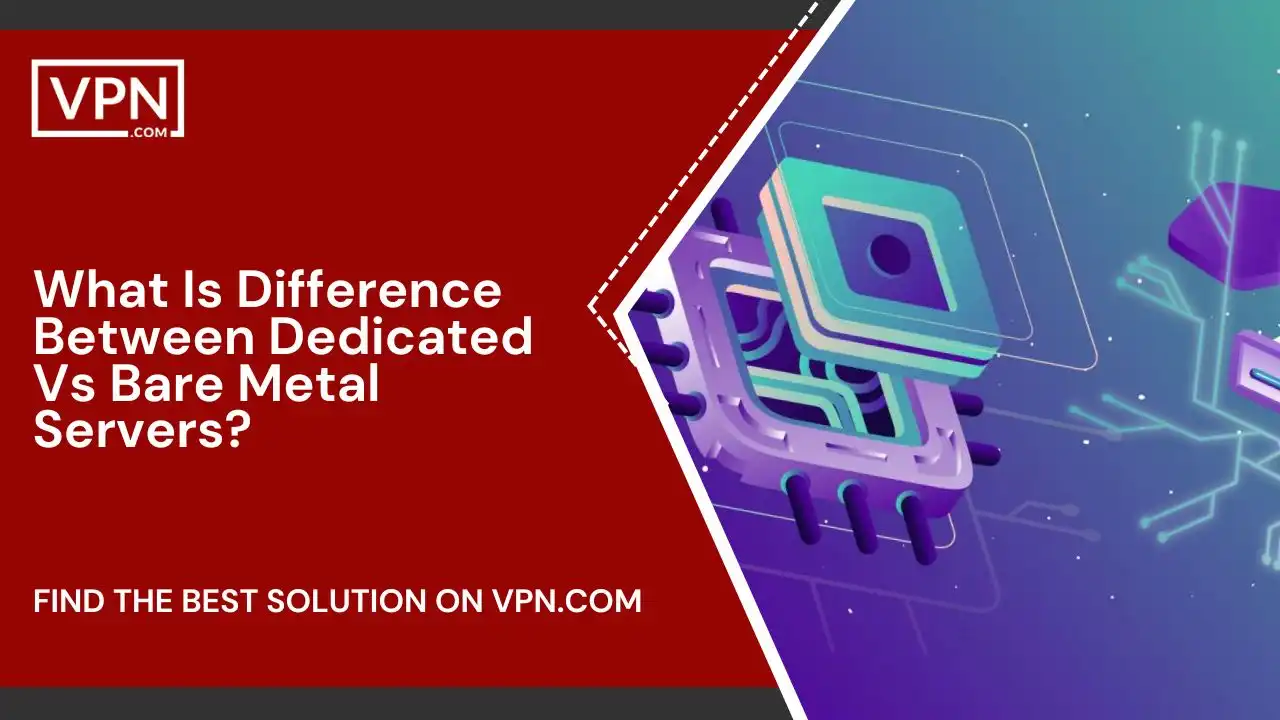
Sometimes, people use the terms “Dedicated Servers” and “Bare Metal Servers” as if they are talking about the same thing but they are more like siblings alike but not exactly twins. It is not really about the servers themselves but how the companies hand them over to you.
Back in the day, if you wanted a dedicated server then it meant waiting a while to get it, paying more each year or month, and often ending up with not so fancy hardware.
Then bare metal servers showed up, basically a response to the not so great things about dedicated servers. Companies focusing on bare metal servers give you dedicated hardware but it is more like the quick delivery you get with cloud services. You can have your server in just a few minutes or hours and the hardware can be either budget-friendly or top-notch including cool stuff like graphics processing units. Dedicated servers are thought of as the wallet friendly choices for people who don’t need all those extra features.

Sign Up with our #1 Host
- 24/7/365 Support
- 100% Uptime SLA
- 59-Second Support SLA
- Highly-Trained Technicians
- 25% Off Dedicated Servers
GUARANTEE
Conclusion
This article is all about bare metal servers. We have compared them with other servers from hosting companies to show why they are so good. Lots of companies think that these servers could be the answer for their website needs because of the big benefits they bring. Simply put, a bare metal server is like having your very own powerful, safe, and reliable digital setup.
The cool thing is you can tweak these servers to fit your needs, making them really flexible. These servers work on their own away from others in the cloud or hosting company. Using a bare metal server with a hypervisor gives you a more flexible option compared to regular servers and it is way quicker to set up. Getting a leased server is fast and simple with lots of IT service providers offering servers ready to go for different tasks.
Bare metal servers give you a lot of bandwidth, so you don’t have to worry about paying extra for using too much. Users can set up rules to control how traffic moves, making things more secure. If you decide to buy a server for your place then remember it can affect your budget because you have to keep things like a data center.
For companies dealing with private info – following safety rules is super important. If you don’t and there is a breach with client data affecting your setup, it can cause problems. Even though people sometimes use “dedicated servers” and “bare metal servers” like they mean the same, they are a bit different. We hope the info we’ve shared here is useful. After reading this, you should have a good idea about bare metal servers and how they are not quite the same as other servers like cloud and dedicated ones. However, if you still have any questions then feel free to ask us.
Customer Reviews for Liquid Web

Amazing Customer Service
April, 25 2023

Liquid Web Support is simply awesome
April, 26 2023

Support is everything
March, 3 2023




